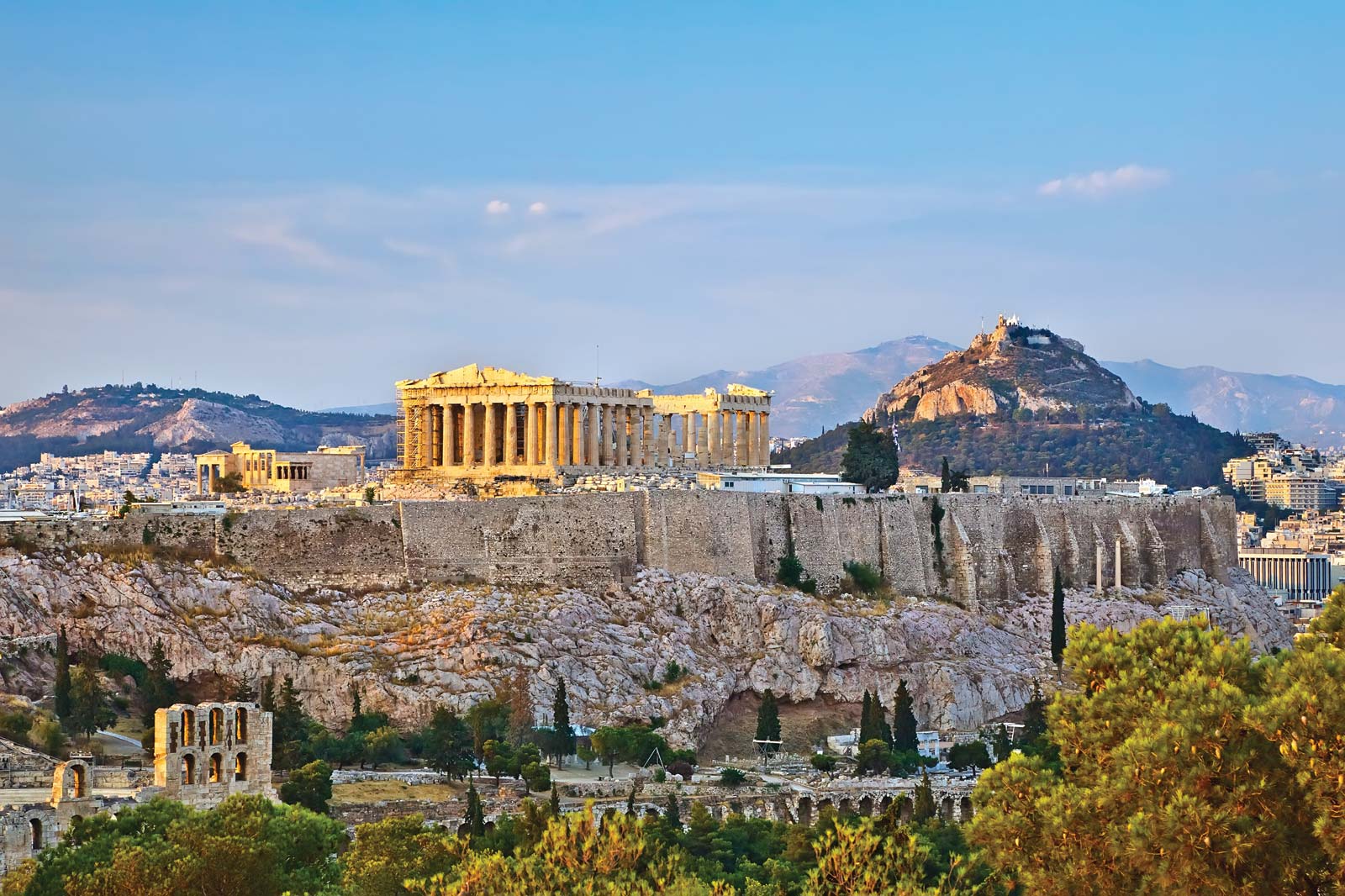The next decade will be all about heat’: can Athens head off climate crisis?

Like every Athens mayor, Kostas Bakoyannis is acutely aware of the illustrious heritage of one of the world’s oldest cities. After all, he says, it is busts of Pericles and his mistress Aspasia that adorn the entrance of the neoclassical town hall. From the windows of his cavernous office, he can glimpse the Parthenon through the jumble of concrete buildings and antennas.
But Bakoyannis prefers to talk about the present, not least his plans for fountains, parks and trees – antidotes to the afflictions of more modern times.
“When you’re the mayor of Athens you are not in dialogue with history,” he says. “You’re in dialogue with the problems, needs, aspirations and hopes of present-day Athenians and anyone who might visit Athens even for a day.”
With that mission, Bakoyannis has his work cut out for him. Decades of reckless urban planning are catching up with the city. Pollution, densely packed neighbourhoods and traffic congestion – byproducts of an uncontrolled building spree that began in the 1950s – are still evident today.
In conditions often likened to a pressure cooker, temperatures can surpass 40C (104F) in the summer. “Our models show annual mean temperatures across the Mediterranean increasing by up to 2C over the next 30 years,” says Christos Zerefos, a professor of atmospheric physics. “In the summer the air temperature will rise by more than 3C. Ecosystems will suffer.”

Bakoyannis, the scion of a political dynasty, was elected to the post in 2019. He knows time is of the essence.
“What we are facing is not a climate crisis but clearly a climate emergency,” he says. “If we’re to do our job well we have to adhere to the principles of resilience and sustainability.”
With the help of state and private sector support, EU structural funds and municipal levies, the budget allocated to green space has quadrupled. Every year €10m is earmarked for nature conservation, according to Bakoyannis, whose candidacy was backed by the centre-right New Democracy party now in government and led by his uncle, the prime minister, Kyriakos Mitsotakis.
Public-private partnerships, until recently a rarity in Greece, will help finance a huge “double regeneration” project that involves a football stadium in the heart of Athens being turned into an urban park, and a green overhaul for the industrial wasteland in the poorer western suburbs where the arena will be moved to.
Progress has been made in reducing car lanes to reclaim public space for pedestrians and cyclists, rejuvenating the hills of Athens, fixing fountains in public squares and creating pocket parks.
In Omonia square, the central plaza also within view of the Acropolis, analysis has shown temperatures dropping by up to four degrees since a multi-jet fountain was installed last year.

Not all the public works have gone down well. The mayor’s eagerness for “liberating” public space has its critics. Bakoyannis, who has also vowed to tackle vehicle emissions by reducing traffic in the city centre, was forced to hand back a traffic lane on a major avenue amid opposition over the move.
“Like most Athenians I’d love the city centre to be pedestrianised,” says Kostas Hadzopoulos out walking his yorkshire terrier around the freshly-planted pocket park in Pangrati, among the most congested districts in central Athens. “But a lot of these moves seem slapdash and ill-thought-out. That said, this was a rubbish dump before, and now it’s a breath of fresh air.”
Bakoyannis is sanguine in the face of criticism that has also been made by his political opponents.
“Change is never easy,” he says. “At the end of the day improving the quality of life is not ideological… We’re all in this fight together.”
Source: The Guardian




